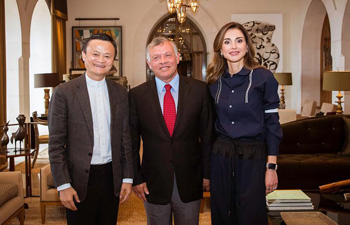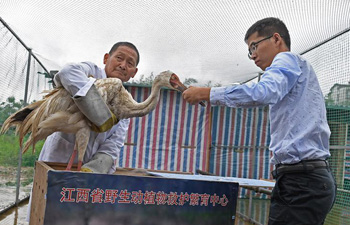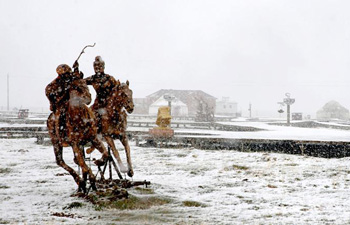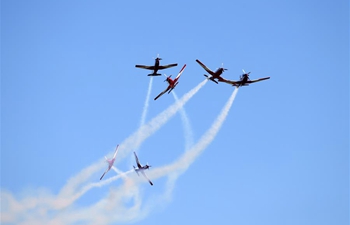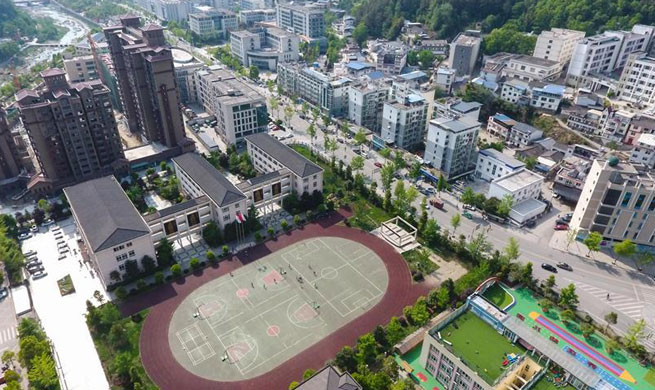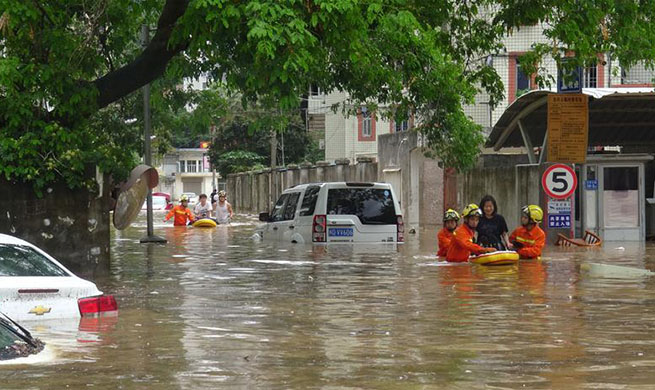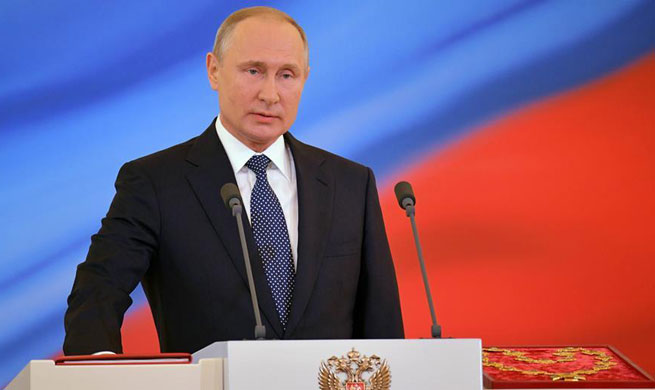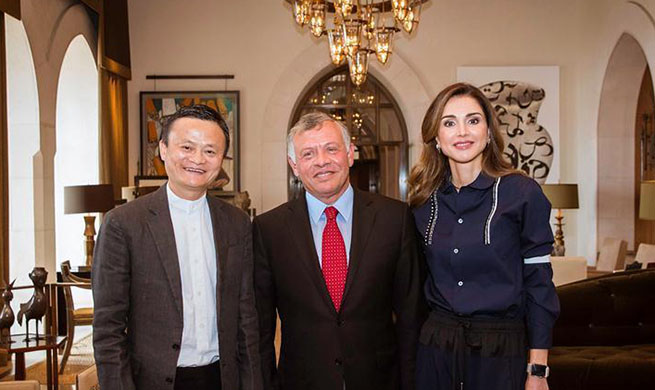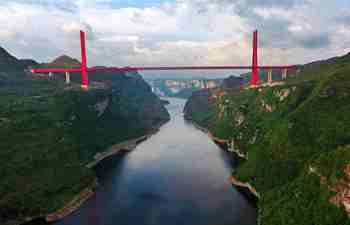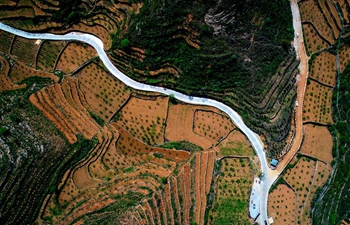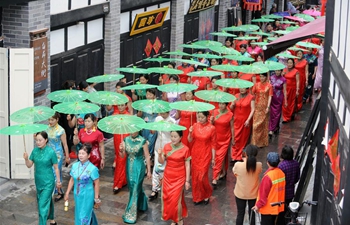by Burak Akinci
ANKARA, May 7 (Xinhua) -- Once his strongest point, economy has become the biggest trouble of Turkish President Recep Tayyip Erdogan and one of the most important reasons for his decision to call snap elections for June as he plans a shift to an executive presidency to weather a storm.
Turkey will have snap presidential and parliamentary elections on June 24. After a controversial constitutional referendum in April 2017, Turks voted in favor of a switch to a presidential system from a parliamentary one and the new system will go into effect following the upcoming crucial vote.
Turkey has serious setbacks in recent years with a failed military coup in 2016 followed by a state of emergency which is still into effect and geopolitical woes accompanying the Syrian war at its southern border.
The NATO and G20 member nation's economic growth has been the most important strength of the Justice and Development Party (AKP) over more than 16 years of rule over Turkey.
Though Turkey's economic growth hit a spectacular 7.4-percent in 2017, the general trend of Turkey's economy and its outlook for next year is not clear, and it is likely to face serious problems, according to observers.
Turkey's 2018 budget faces a potential deficit of 17 billion U.S. dollars. The Turkish Lira against the dollar reached its lowest level of 4.29 on Friday. The foreign direct investment rate in Turkey, one of the locomotives of the economy, fell by 17 percent due to geopolitical tensions and domestic policy problems.
The IMF warned in February 2018 about the emergence of economic risk in Turkey, and sectors like foreign major financial needs and limited foreign exchange reserves increased dependence on short-term capital flows, including Turkey's economic turmoil.
To add to Turkey's woes, consumer price inflation rate climbed to 10.9 percent in April from 10.2 percent in March, relatively very high compared with the inflation levels in other countries, such as 2.7 percent in Brazil, 4.3percent in India, and 2.4 percent in Russia.
Erdogan's government did not heed warnings that the economy was overheating, and recently announced a fresh round of stimulus measures pulped with a controversial tax amnesty.
Nevertheless, Standard & Poor's downgraded Turkey's rating amid concern about inflation, weakening Lira and widening dept-financed current account deficit. The rating agency warned about the hard landing risk for Turkey's economy.
Aiming to ease fears over the economy, the Turkish president promised in a public rally in Istanbul, Turkey's economic heart, lower interest rates and inflation and to reduce the current account deficit.
"The Turkish economy will be more resistant to outer shocks and financial blows. Turkey will be more attractive to investors," Erdogan said.
"Development and prosperity projects will be accelerated so as the national income will be deployed to all grounds in our society beginning from the base, the gap between the income groups will close rapidly," Erdogan said to thousands of his supporters.
But experts believe that even if Erdogan wins the presidential race where he is the clear favorite against a handful of rivals, he has to act quickly and resolutely to rebuild confidence.
"The most important priority is to embark on a path of structural reforms in economy that have been delayed in the past years. This is what is needed to be done immediately after the elections," said Enver Erkan, a Turkish economist.
"The next administration of Turkey should have the necessary resolve to adopt and apply reforms," he said, indicating that the present government lacked in doing so and brought over the actual weaknesses of the economy.
Erdogan has several colossal projects on the way and aims to bank on them, including the largest international airport in the world, a suspension bridge over the Bosporus waterway which will be the widest in the world, and, most ambitiously, a 14.1-billion-dollar canal project which will only be rivaled by Suez and Panama.
These major projects are concentrated in Istanbul, where Erdogan served as mayor in the 1990s, a megapolis which has grown from a population of 3 million people in 1980 to more than 15 million nowadays.
Erdogan is proud of his infrastructure projects and often accuses "an international conspiracy" of harming his country's economy in order to get rid of him and his regime.
In spite of difficulties, Turkey's economy has potential and the IMF projects that it will enjoy a 4-percent growth in 2018. Nevertheless, experts argue that the post-election area is crucial in restoring confidence.
"Whoever wins the election, it is most important to focus on securing a soft-landing instead of preoccupying ourselves with lifting the economy. This means focusing on how to help companies that have large debts that they cannot pay off, as well as companies on the brink of bankruptcy," commented economist Ugur Gurses in his column in the Hurriyet Daily News.
According to Erkan, there are still positive signs in the economy in the short term because it has a good potential for growth in 2018, and despite the increase of imports, Turkey has also managed to increase sensibly its exports.
But in order to keep things on track in the coming months, a proper interest rate is a must, he added.
The Turkish central bank has tightened monetary policy with a 75-basis point rate hike this year and further interest rate increases are likely after the June elections, according to Capital Economics economist Jason Tuvey.
"All of this strengthens the case for the Turkish monetary policy committee to take further steps to tighten monetary policy over the coming months," said Tuvey in a note to investors.




